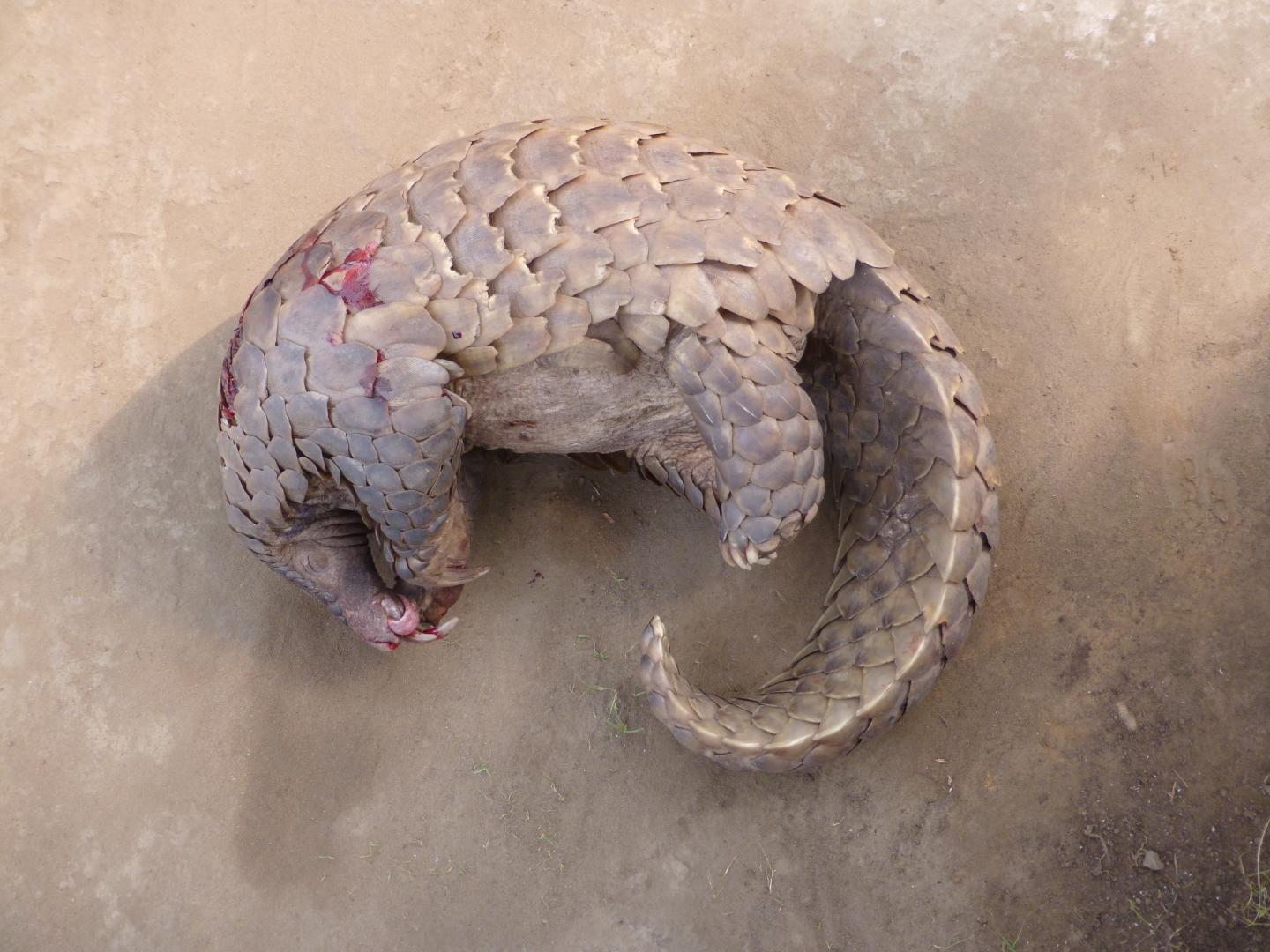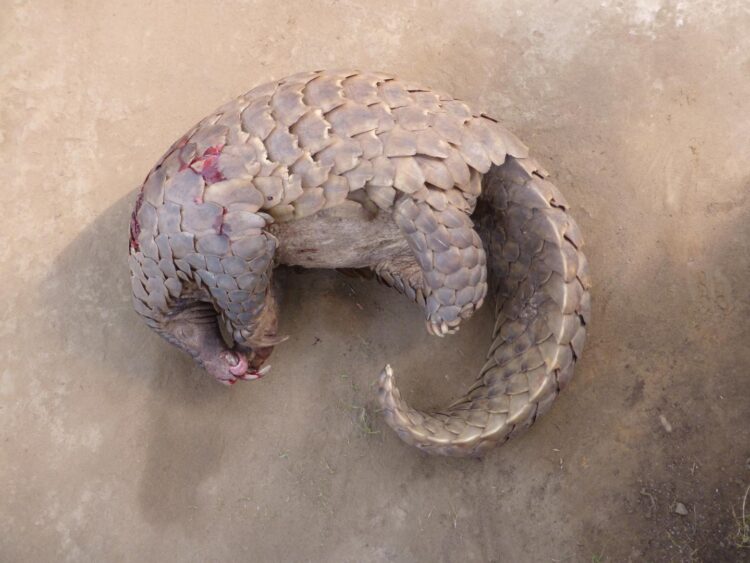Study looks at different types of traffickers and sellers in cities

Credit: Michelle Wieland/WCS
BRAZZAVILLE, Republic of Congo (April 19, 2021) – A new study classifies different types of wildlife traffickers and sellers in two of Central Africa’s growing urban centers, providing new insight into the poorly understood urban illegal wildlife trade. The findings can help conservation and law enforcement authorities prioritize their efforts on professional criminals, identify patterns among repeat offenders, and determine if wildlife offenders are engaging in other types of crime.
Authors from the University of Maryland and Wildlife Conservation Society (WCS) describe their findings in the journal Global Ecology and Conservation. The research focused on a range of species, including great apes, pangolins, and crocodiles and helps to clarify where professional criminals potentially engage with illegal supply chains, where the illegal value chains share touchpoints with other forms of criminality, and where they do not.
The authors created a classification of urban wild meat trafficking and selling in Brazzaville and Pointe Noire, Republic of Congo. They found that the types of wildlife traffickers and sellers were different in terms of their professionalism, offending rates, criminality, and need for resources that support continued criminality. The results help show the variation of wild meat trafficking in Republic of Congo’s urban centers which can help focus conservation programs so they are more precise and are more likely to achieve intended outcomes.
For example, one category called “Criminal diversifiers” use traditional economic models of supply and demand for pangolin scales and often have connections with border officials; they can be multi-lingual (e.g., Lingala, Munukutuba, Swahili, French, English). The transnational nature of pangolin scale trafficking requires border contacts and professional sellers manage the logistics of the illicit supply chain, moving large quantities of scales across oceans and continents. Based on participant perceptions, this is the most high-level criminal connection of all species.
Urban wild meat consumption can contribute to significant declines in wildlife populations, ecosystem function, and food insecurity. Classifying groups and individuals involved in urban wild meat trafficking may help distinguish ordinary citizens from members of criminal organizations, and help reduce stereotyping and injustice, the authors note. Characterizing stakeholders is also useful for focusing the format, content and distribution methods of communication, marketing, or education campaigns designed to reduce wildlife trafficking.
Said the study’s lead author Dr. Meredith Gore of the University of Maryland: “This research helps amplify the voices of diverse local experts with extensive knowledge about the human dimensions of the illegal wildlife trade in and to African cities. The new information about forms of sellers and traffickers may help identify where the criminological risks from illegal wild meat trade are concentrated, and where they are not, along the bridge from rural to urban environments.”
Said the study’s co-author Christian Plowman of WCS’s Central Africa Program: “It will be exciting to see these crime science-based approaches tested (and retested) in other urban environments and for other species of conservation concern. Cross-disciplinary and evidence-based approaches to preventing conservation crime can add value to existing efforts.”
Hunting and fishing contribute to rural diets, and in low-density and non-commercial settings, do not normally pose a threat to wildlife populations. The loss of pangolins, apes and crocodiles due to illegal overharvesting for wild meat would result in loss of tourism revenue, have a destabilizing effect on forest and freshwater ecosystems, and impact rural communities who still rely on their natural resource base for livelihoods, culture and food security.
The authors say that further refining the lists and definitions of, as well as linkages between, types of sellers and traffickers of illegal urban wild meat will be useful, as urbanization continues at a rapid pace in the Republic of the Congo, and elsewhere in the world. As the size and wealth of the urban populations grows, the demand for wild meat is expected to increase.
Minimizing adverse per capita impacts of cities on natural resources and the living environment and supporting more positive environmental links between urban and rural areas, can be accomplished in part through reduced wild meat trafficking. Reducing the scope and scale of criminality associated with wild meat trafficking can enable better realization of sustainable development goals, such as tourism revenue from protected areas and rural communities relying on natural resource bases for livelihoods, cultural heritage, and food security.
###
WCS (Wildlife Conservation Society)
MISSION: WCS saves wildlife and wild places worldwide through science, conservation action, education, and inspiring people to value nature. To achieve our mission, WCS, based at the Bronx Zoo, harnesses the power of its Global Conservation Program in nearly 60 nations and in all the world’s oceans and its five wildlife parks in New York City, visited by 4 million people annually. WCS combines its expertise in the field, zoos, and aquarium to achieve its conservation mission. Visit: newsroom.wcs.org Follow: @WCSNewsroom. For more information: 347-840-1242.
Media Contact
Stephen Sautner
[email protected]
Original Source
https:/
Related Journal Article
http://dx.





